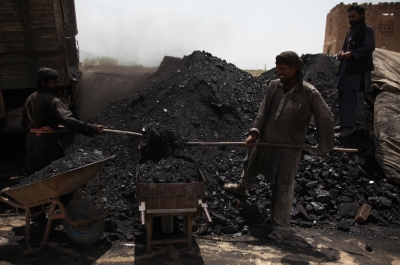New Delhi, Nov 20 (IANS) The import of coal by non-regulated sectors and domestic coal-based thermal power plants, for blending, declined by 9.83 per cent to 63.28 million tonnes (MT) from April to September 2024, from 70.18 MT in the same period last year, and by 8.6 per cent to 9.79 MT from 10.71 MT, respectively, the Ministry of Coal said on Wednesday.
“This demonstrates an increased reliance on domestic coal supplies for these sectors. However, there has been a rise in the import of coking coal, essential for the steel industry, and coal for imported coal-based power plants, which are not substitutable by domestic coal,” a Ministry statement said.
Consequently, the overall coal imports during April-September 2024 increased marginally by 1.36 per cent, reaching 129.52 million tons (MT) compared to 127.78 MT in the corresponding period of the previous year.
In terms of value, overall imported coal during April-September 2024-25 stands at Rs 1,38,763.50 crore, a decrease from Rs 1,52,392.23 crore during the same period last year. This reduction has resulted in huge savings of Rs 13,628.73 crore demonstrating a more cost-effective approach to coal procurement, the statement said.
The Ministry of Coal said it remains committed to reducing dependence on imported coal where feasible, by ramping up domestic production and streamlining logistics. At the same time, imports of non-substitutable coal are strategically maintained to support critical industries like power and steel.
India’s coal production rose by 7.4 per cent to 84.45 MT in October compared to 78.57 MT in the corresponding month of the previous fiscal. Coal production from captive and other entities rose to 16.59 MT in October over 11.70 MT in the corresponding month of the previous fiscal. In the April-October period of 2024-25, India’s coal production rose by 6.1 per cent to 537.45 million tonnes (MT) compared to 506.56 MT in the corresponding period of the previous fiscal, the Ministry said.
It said its focus is on “ensuring energy security and cost efficiency while advancing towards the vision of Atmanirbhar Bharat. The commitment to energy security and economic efficiency remains paramount as we move forward”.
–IANS
sps/vd

































